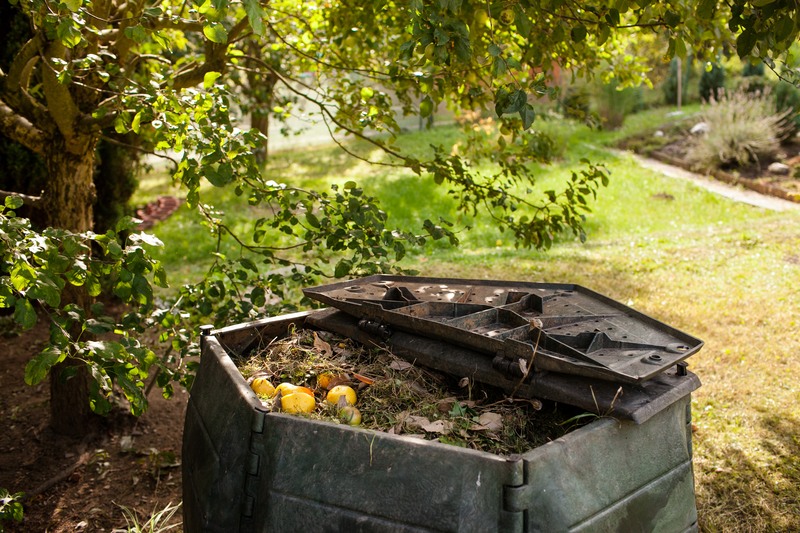Combatting Waste Dumping in the UK
Posted on 02/12/2024
Waste dumping is an escalating problem in the UK which threatens the environment, wildlife, and public health. Effectively tackling this issue requires a multifaceted approach, combining government policies, community actions, and individual responsibility.
The Scope of the Waste Dumping Problem
The UK's waste dumping problem has grown exponentially over the last few years. Illegal dumping of waste, commonly referred to as fly-tipping, has increased significantly. According to governmental reports, over one million fly-tipping incidents were reported in recent years. This illegal activity not only litterates the countryside but also places significant financial and resource burdens on local authorities.

Government Policies and Legislation
Legislation is one of the key tools to address waste dumping. The UK government has introduced several measures to curb illegal waste disposal. Penalties for fly-tipping can include heavy fines and even imprisonment for severe cases. Moreover, the Environmental Protection Act 1990 sets out rules for waste handling and disposal, requiring waste producers to take responsibility for their waste.
The government has also encouraged the development of infrastructure for waste management, such as recycling centers and waste management facilities. Additionally, technological advancements, such as surveillance cameras and GPS tracking of waste transport, are being employed to deter illegal dumping.
Community Involvement and Education
Public awareness and community involvement are crucial in combatting waste dumping. Local councils and environmental organizations often organize campaigns to educate the public about the dangers and legal consequences of fly-tipping. Community clean-up days and waste reduction initiatives are increasingly popular, fostering a sense of responsibility among local residents.
In schools, educational programs aimed at teaching children about the importance of proper waste disposal and recycling play a significant role. These programs equip the younger generation with knowledge and habits that contribute to a cleaner future.
Technology and Innovation
Harnessing technology can provide innovative solutions to waste dumping. Mobile apps that allow citizens to report fly-tipping incidents can help local authorities act swiftly. Blockchain technology can ensure transparency in the waste management supply chain, making it easier to enforce regulations.
Recycling technology is also evolving, with advancements in material sorting and processing making recycling more efficient and cost-effective. These innovations can reduce the volume of waste that needs to be disposed of, thereby decreasing the likelihood of illegal dumping.
Individual Responsibility
The role of individuals in waste management cannot be overlooked. Proper sorting of household waste, using designated bins for recycling, and using authorized waste disposal services are simple yet effective ways to combat waste dumping. Additionally, reducing waste generation by adopting a minimalistic lifestyle and supporting products with sustainable packaging can significantly impact overall waste levels.
Pros and Cons
Pros:
- Improved public health and safety
- Preservation of wildlife and natural habitats
- Economic benefits from reduced clean-up costs and improved recycling rates
- Enhanced community pride and aesthetics
Cons:
- High costs of implementing and maintaining waste management infrastructure
- Potential for increased regulation and oversight, which can impact businesses
- Challenges in changing public behavior and attitudes towards waste
Tips for Reducing Waste Dumping
- Educate Yourself: Learn about your local waste disposal regulations and facilities.
- Recycle Properly: Ensure that you are recycling items correctly to avoid contamination.
- Report Fly-Tipping: Use local hotlines or apps to report illegal dumping.
- Participate in Clean-Up Events: Join community efforts to clean up public areas.
- Conserve Resources: Practice reducing, reusing, and recycling in your daily life.

Takeaways
Combatting waste dumping in the UK requires a collaborative effort from government, communities, and individuals. While significant progress has been made through legislation and education, ongoing innovation and active participation at the grassroots level remain essential. By combining these efforts, the UK can move towards a cleaner, safer environment.
Conclusion
In conclusion, addressing the issue of waste dumping in the UK demands a comprehensive approach. Legal frameworks, community involvement, technological advancements, and individual action are all critical components of an effective waste management strategy. By working together, stakeholders can significantly reduce waste dumping, preserve the environment, and promote public health.
Latest Posts
Alternatives to Common Plastic Items
Recycling Strategies for Non-Compostable Garden Materials






